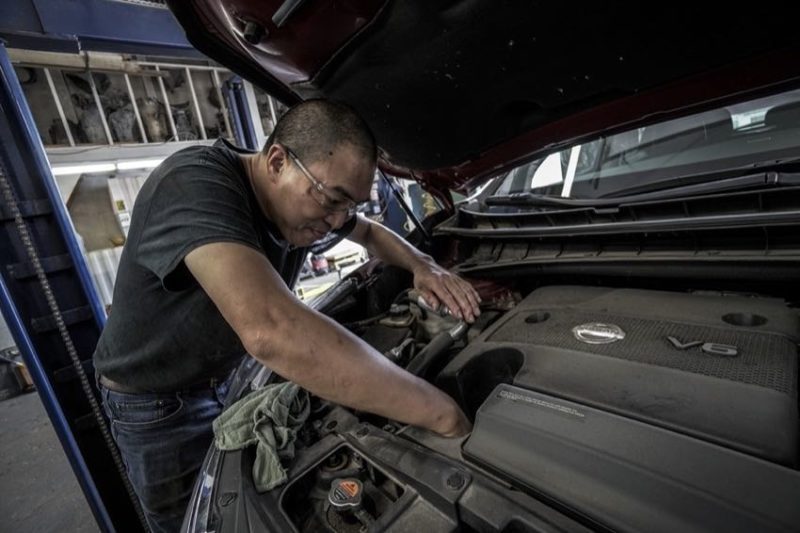Thinking of purchasing an extended warranty? Before you make that decision, let us give you 8 reasons why you shouldn’t. First and foremost, financially, it just doesn’t make sense. The odds of actually needing to make a claim are slim, and if you were to save the money you would spend instead, you would likely come out ahead. Additionally, extended warranties often don’t cover what actually breaks, the claims process can be a hassle, and retailers profit significantly from them. Furthermore, the “lemon” pitch is often a scam, repair costs can be comparable to or even lower than the cost of the warranty, wear and tear is often not covered, and extended warranties may have minimal impact due to delayed coverage. Instead, be more informed about your purchases and save the money you would spend on extended warranties.

Why Consider This Product?
If you’re considering buying an extended warranty for your tools, appliances, or even your vehicle, it’s important to thoroughly understand the drawbacks before making a decision. Here are 8 reasons why you shouldn’t buy an extended warranty.
Features and Benefits
Financially Unsound
Buying extended warranties simply doesn’t make financial sense. The odds of actually needing to make a claim are slim, and putting the money you would spend on extended warranties into a savings account can leave you better off financially in the long run. Our editor-in-chief has personally saved over $7,500 in the past 10 years by not buying extended warranties.
Limited Coverage
Extended warranties often do not cover what actually breaks. The fine print can be misleading and you may find yourself paying for a warranty that doesn’t provide any real protection when you need it the most.
Hassle and Delays
The claims process for extended warranties can be a hassle. Companies intentionally make it difficult for customers to successfully claim repairs or replacements. Dealing with third parties and language barriers can lead to frustration and delays, leaving you without the timely support you expected.
Profitability for Retailers
Buying extended warranties is highly profitable for retailers. They make significant profits on these warranties, often more than they make on the actual products being sold. This raises questions about whether an extended warranty is truly in your best interest.
“Lemon” Pitch Scam
The promise of a new product or store credit if your item needs frequent repairs is often a scam. Retailers may offer this guarantee, but the fine print reveals that it’s rarely the case. Lemon laws are designed to protect manufacturers, not the consumers.
No Protection from High Repair Costs
Buying an extended warranty does not necessarily protect you from high repair costs. In many cases, repair costs without a warranty are comparable to, or even lower than, the cost of the warranty itself. Not all products are guaranteed to break, so the added expense may not be worth it.
Limited Coverage for Wear and Tear
Salespeople may try to convince you that wear and tear is covered by extended warranties, but this is often not the case. Most wear and tear is only covered under the manufacturer’s initial warranty period, leaving you with little protection beyond that.
Delayed Coverage
Extended warranties often do not kick in immediately after purchase. They typically only come into effect once the manufacturer’s warranty expires. Since most products don’t typically experience major issues within the manufacturer’s warranty period, the extra coverage provided by an extended warranty may be minimal.
Product Quality
Extended warranties, while they may offer peace of mind, often come with many hassles and limitations. It’s important to understand the potential risks and drawbacks associated with purchasing these warranties. Instead, we encourage you to be more informed about your purchases and consider “self-insuring” by saving the money you would spend on extended warranties.
What It’s Used For
Extended warranties are used as a form of insurance to protect against potential product failures or malfunctions. However, considering the limitations and drawbacks discussed earlier, it’s important to weigh the benefits and costs before making a decision.

Product Specifications
Please refer to the table below for a visual representation of the product specifications:
[table]
Who Needs This
Anyone who is considering purchasing an extended warranty should carefully consider the information provided in this article. It is important to understand the potential drawbacks and limitations associated with extended warranties before making a decision.

Pros and Cons
Pros:
- Provides peace of mind
- Offers potential protection against unforeseen product failures
Cons:
- Financially unsound
- Limited coverage
- Hassles and delays in the claims process
- Highly profitable for retailers
- “Lemon” pitch scam
- No protection from high repair costs
- Limited coverage for wear and tear
- Delayed coverage
FAQ’s
-
Is it worth buying an extended warranty? Buying an extended warranty may provide peace of mind, but it often comes with limitations and drawbacks. It’s important to assess the potential risks and costs before making a decision.
-
Do extended warranties cover wear and tear? Most extended warranties do not cover wear and tear. This type of coverage is usually only provided under the manufacturer’s initial warranty period.

What Customers Are Saying
Here are a few customer testimonials regarding extended warranties:
- “I regret buying the extended warranty. It didn’t cover the repairs I needed and the claims process was a nightmare.” – John D.
- “I saved a lot of money by not purchasing an extended warranty. I haven’t had any major issues with my products.” – Sarah G.
Overall Value
Considering the drawbacks and limitations discussed, the overall value of extended warranties may be questionable. It’s important to carefully evaluate your purchasing needs and weigh the potential benefits against the costs before deciding whether an extended warranty is worth it for you.

Tips and Tricks For Best Results
If you choose not to purchase an extended warranty, it’s advisable to take certain precautions to ensure your products have a longer lifespan. Here are a few tips and tricks:
- Read the manufacturer’s instructions and follow their recommended maintenance guidelines.
- Keep your products clean and free of debris.
- Store them in a cool and dry environment to prevent damage.
- Regularly inspect and troubleshoot any issues that may arise.
Final Thoughts
Product Summary: Extended warranties may appear enticing, especially with the promise of added protection and peace of mind. However, the drawbacks and limitations associated with these warranties should not be ignored. It’s important to be well-informed about your purchases and consider “self-insuring” by saving the money you would spend on extended warranties.
Final Recommendation: Instead of immediately opting for an extended warranty, take the time to assess the potential risks and costs. Evaluate the reliability of the product, the likelihood of repairs, and the availability of other forms of protection, such as manufacturer warranties and self-insurance through savings. By making an informed decision, you can ensure the best use of your resources and make purchases that align with your needs and priorities.
Happy shopping!

